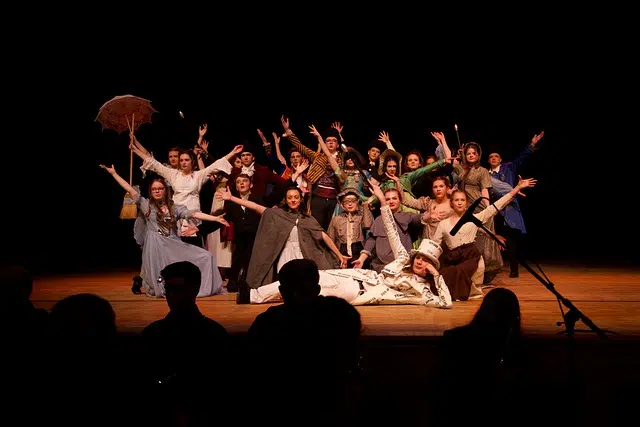
The art of writing and representing a story on stage is known as dramaturgy.
The art of composing and representing a story on stage is known as dramaturgy . In turn, a playwright is one who writes works to be performed in theater or adapts other books to that format.
The playwright, therefore, is responsible for both the writing of the texts and the design of the work, since he is in charge of developing the structure of the performance. The main difference between a playwright and a writer who works in other genres is that, in playwriting, conflicts happen at the same time and place in which they occur.
Pictures and acts
The works of dramaturgy can be divided into acts that, in turn, can be fragmented into paintings . The paintings, finally, are divided into scenes . The length of each part of a work can vary according to the will of the playwright. There are works that are made up of a single act.
It is important to keep in mind that a play can be adapted to various formats. In this way, a theatrical work can be broadcast on television or reach the cinema. In all cases, the important thing is that the structure of actors interacting “here and now” is maintained in front of the eyes of the spectator who observes the representation of the actions.

Generally, dramaturgy is associated with theater.
Characteristics of a play
For a work to be classified within this genre, it must have a certain structure, in which various parts can be defined.
* Conflict display : the characters, the setting and the plot around which the work will revolve are presented. Conflict is the fundamental axis of a dramatic work, without it there is no drama. The presentation of the conflict varies according to the work. Depending on the playwright's vision, it can be done from a character, as if the problem itself were an entity or from a point of view that escapes the will of the characters.
* Development of the action : as the play progresses, the conflict becomes stronger; testing the principles or faculties of the characters and giving the story an artistic character . Dramatic thinking as such arises from this contrast of a reality with the ideas of the characters and the effort they make to overcome the vicissitudes of reality.
* Outcome of the action : when the protagonist manages to overcome the obstacle and the initial conflict no longer exists, the work is finished. In some cases, what disappears is not the conflict but the protagonist himself.
Representation of a conflict
Dramatic works represent a human conflict, based on the confrontation of two opposing forces . This must be resolved from actions carried out by the protagonist(s). And, once that has been solved, the story is concluded.
It is important to note that, unlike narrative genre texts, plays express their richness through dialogue and do not require a narrator. The story develops from the chain between the various dialogues .
Dramaturgy in film and TV
Although it is strongly linked to theater, dramaturgy is also present in cinema and television. This means that a playwright can be the author of film scripts and soap opera scripts, for example.
In cinema, many directors are also playwrights , since they write their scripts themselves, as is the case of the Spanish Fernando León de Aranoa, who, in addition to writing scripts for his films, is also the author of fantastic stories.
